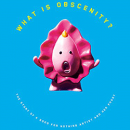How Is COVID-19 Changing Your Sex Life? Survey Seeks Data and Solutions
Examining the impact of isolation, fear, and uncertainty on sexual behavior.

Cities and municipalities worldwide are settling into the depths of the possibly months-long Coronavirus outbreak.
Discovering sustainable health regulations to maintain public health in this bizarre new age is a foremost concern.
However, related, the human desire for sex and physical intimacy clearly can supersede the goals of social distancing. Furthermore, post-COVID-19, one can only surmise that the immediate desire for sexual contact will be significant, but fears regarding potential residual contagion will be high as well.
Thus, having a conversation with urologist, andrologist, and sexual medicine expert Dr. Maria Fernanda Peraza Godoy and urologist Dr. Eduardo García Cruz of the Healthy Pleasure Collective’s Healthy Pleasure Lab makes sense.
Based in Barcelona, the tandem (who are co-directors of the lab) is committed to applying knowledge and technology to obtain solutions that should help to redefine sexual health.
To this end, they have just commenced a worldwide survey to assess the global quarantine’s impact on sexual activity so far during the COVID-19 outbreak.
Seeking sex survey participants
The Healthy Pleasure Collective believes themselves to be well along the path to developing new solutions for where we’re headed, sexually, in the present, and future.
“Though we consider humans to have high levels of sexual desire, people right now are putting those desires on hold for later, once this all returns to normal,” Dr. Cruz begins.
“People are currently concerned about whether they can contract the virus through semen, vaginal secretions, or anal or vaginal intercourse in general,” Dr. Godoy continues.
The survey we are currently conducting concerns about how the crisis will change our sexual behavior. Fear is and will be significant, as people will be uncomfortable about sex due to the nature of these unprecedented times. We’re only now getting data. Will we see a rise in people using dating apps and social media? What about people’s attitudes towards masturbation? These are all important questions. We will initially have more questions than answers, for sure.
Intimacy without touch

To the Healthy Pleasure Collective’s medical duo, three fundamental notions inform post- COVID-19 sexual engagement: Foremost, improving how couples communicate without having sexual coupling available to them is essential.
Secondly, improving the quality of non-physical, yet still, real-time virtual sexual engagement is critical. And finally, working to create a modern society reframing sex overall as an act driven by an “empathy first” ethos is necessary.
“The data we see so far points to couples learning how to communicate better because they’re home with each other. The time where they used to have sex, they’re now devoting to talking,” Dr. Cruz says.
Dr. Godoy continues, “relationships tend to move in a cycle of harmony, disharmony, and repair. Sexuality has an important role in healing those cycles. Losing that part of the cycle, so quickly, is interesting. Sex used to be mainly for procreation, then in the 1960s, it emerged as a privilege rather than a marital duty. Now, we don’t know. We have a lot of analysis to do [to figure out what’s next].”
“Unfortunately, violence at home could increase, as an unexpected increase in cohabitation can trigger negative behavior,” Dr. Godoy notes.
When discussing how couples can improve their modes and methods of communication, it is essential to note that pre-existing aggressive conditions are troublesome.
Abusive relationships in lockdown

Worldwide, domestic violence in the wake of the Coronavirus outbreak is already a concern.
In America so far, CNN reports that Portland, Oregon had a 27% increase in domestic violence arrests between March 12 and 23, 2020, as compared with the same period in 2019. As well, they note a 22% jump in domestic assault and battery reports in Boston between March 2019 and March 2020, plus Seattle with a 21% increase in reports of domestic violence during the same time period.
Domestic violence rates have surged in South Africa, where nearly 90,000 reports of violence against women were reported in the first week of a lockdown. As well, the U.N. says that Lebanon and Malaysia have seen the number of calls to helplines double, compared with the same month last year.
In China, the number of calls has tripled Shockingly, in Malaysia, the government retracted, a controversial campaign advising women not to nag their husbands and to refrain from being “sarcastic” when asking for help with household chores.
Moreover, the Australian government has promised $91 million to address the problem as part of its COVID-19 response plan.
Statistics Canada has found that one in 10 women report being “very or extremely concerned about the possibility of violence in the home” during COVD-10. At least two women in Canada have been killed by an intimate partner who then committed suicide.
The New York Times also reports domestic violence has risen by 30% in France and Spain’s emergency line for domestic violence has received 18% more calls.
Cutting back on coitus
“Intercourse is decreasing,” Dr. Godoy states, regarding data studied immediately after the recent Coronavirus outbreak.
“Currently, 20% of people are using a combination of dating apps and social media to engage in sexual relationships with various partners,” he continues.”
Both doctors conclude via this data that this has allowed many individuals to already incorporate a healthy masturbation habit into their lives to generate self-pleasure, or as a stress management tool.
“I already have people calling me at the office asking me about how to best include adult entertainment in their lives and how to use self-pleasure devices safely,” says Dr. Godoy.
Dating apps surge

To wit, CNBC reports that Bumble saw a 25% overall rise in messages sent from March 12 to 22. Match Group, the umbrella company for Match, Tinder, Hinge, Plenty of Fish, and four other dating platforms, has launched free tools for users in light of widespread pandemic-prompted isolation.
These tools include a Dating while Distancing hotline staffed by the company’s dating experts 12 hours a day. As well, Tinder swipers can review possible matches in another country’s quarantine via the app’s usually subscription-based, but now free-to-use Passport feature.
Furthermore, Hinge, noting that 70% of its users are expressing interest in going on digital dates, have actively encouraged using phone calls and video chats to build connections. And yes, Pornhub’s premium tier is available for free until April 30.
Amid these wildly unusual times, Dr. Maria Fernanda Peraza Godoy’s most impassioned plea involves how we can all actively engage in “reframing sexuality.”
“The lack of empathy that’s a part of non-real-time relationships is the main concern,” she says. “Moving away from ‘gaslighting’ and other issues, people mainly deal with online will enhance and improve our increased engagement with virtual, online, and mobile dating.”
Also, Dr. Godoy fully expects there to be a change in consumer culture as related to this, too.
The diversity of options in everything from sex toys to dating platforms — and how, when, and why people choose to engage with them, and in what relational ways — will need to be studied and managed.
In a New Republic piece dated March 17 entitled “The Radical Empathy of the Coronavirus Panic,” author Eve Fairbanks notes, “injuring another person without intending to by taking a risk whose danger you could have foreseen is called dolus eventualis. It’s punished less severely than dolus directus—the direct intent to harm—but it’s still a crime.
The concept acknowledges that we have an inherent duty to protect other people, even strangers, from unnecessary danger.”
As this relates to virtual dating, sexting, and yes, even the act of self-pleasure to online content, it’s all about engaging with the other person from a place of kindness, awareness, and understanding.
Adopting this behavior informs the future of this as normalized engagement with a humane sensibility that could easily allow it to become a sustainable method of hyper-engaged and interpersonal sexuality.
When asked about her hopes for our most ideal post-pandemic future, Dr. Godoy pauses, then makes a very thoughtful statement:
“Society is going through a major crisis. Maybe I’m an optimistic person, but I believe that having good data and science involved will help assist people in making accurate and well-defined decisions.” Dr. Cruz concludes, “this study and its results are a unique opportunity to understand how we will proceed as sexual human beings a little bit better.”
Image source: thehpcgroup, Nino Carè, congerdesign, Don Hankins
Leave a reply
You must be logged in to post a comment.

















